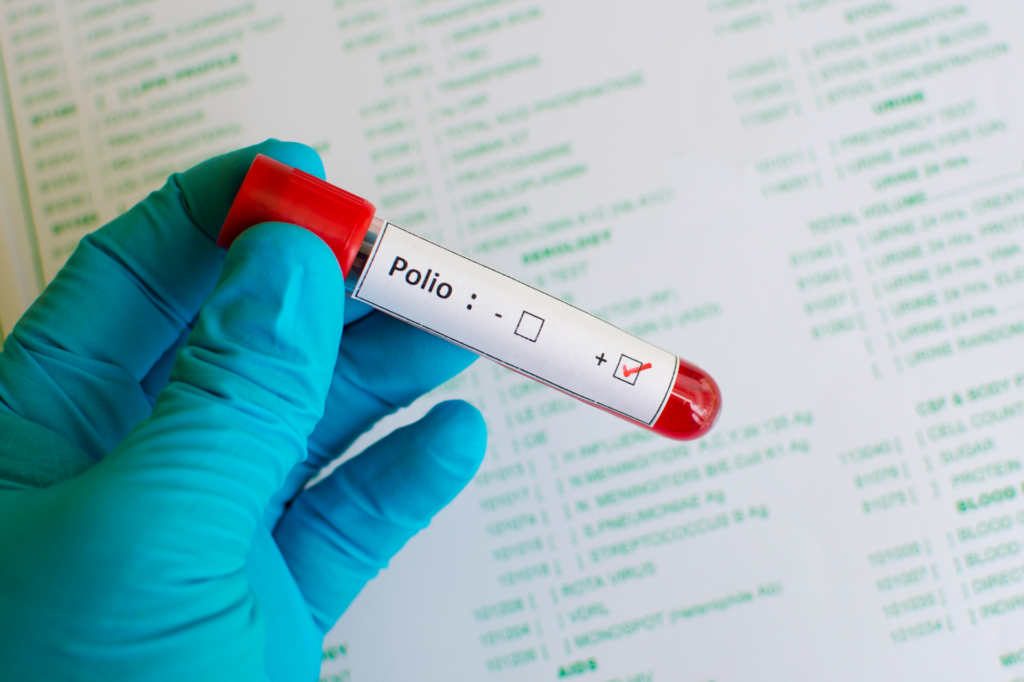
On Thursday, health authorities in Rockland County, New York, confirmed the first case of polio in the U.S. in nearly a decade after one of its residents tested positive for the viral disease.
In view of the situation, the New York State Department of Health asked residents to be extremely vigilant, and physicians and health care providers to be on the lookout for additional cases.
Because the polio vaccine is still included in the Centers for Disease Control and Prevention's (CDC) standard childhood immunization schedule, those who are already vaccinated are considered to be at lower risk.
In particular, the polio vaccine is part of the mandatory school vaccination program for all children and, therefore, those of school age are vaccinated before starting school.
However, people who are not vaccinated, including those who are pregnant, those who have not completed their polio vaccination series previously or community members who are concerned about having been exposed, should be vaccinated, the health authority said in a statement.
He added that those who are already vaccinated, but are at risk of exposure, should receive a booster.
"Based on what we know about this case and polio in general, the Department of Health strongly recommends that unvaccinated individuals be vaccinated or boosted with the FDA-approved IPV polio vaccine as soon as possible," said state health commissioner Mary T. Bassett, M.D.
"The polio vaccine is safe and effective, protects against this potentially debilitating disease, and has been part of the backbone of required routine childhood vaccinations recommended by health officials and public health agencies across the country," he stressed.
In this case, sequencing performed by the Wadsworth Center, the public health laboratory of the New York State Department of Health and confirmed by the CDC, showed reversed Sabin virus type 2 polio.
This, they said, is indicative of a chain of transmission from an individual who received OPV, which is no longer licensed and administered in the U.S., to an unvaccinated individual.
Only inactivated polio vaccine - IPV - has been administered in the USA since 2000.
Therefore, the virus may have originated from a location outside the U.S. where OPV is administered, as reversed strains cannot arise from inactivated vaccines.
Poliomyelitis, what is it and how is it transmitted?
As a viral disease that can affect the nervous system and cause muscle weakness, poliovirus usually enters the body through the mouth and fecal-contaminated hands of an infected person. Respiratory and mouth-to-mouth transmission through saliva can also occur.
Polio is highly contagious and a person can spread the virus even if he or she is not sick. Symptoms, which can be mild and flu-like - fatigue, fever, headache, stiffness, muscle pain, vomiting - can take up to 30 days to appear, during which time an infected person can spread the virus to others.
Although rare, some cases of polio can cause paralysis or death.
CDC recommends that children receive four doses of polio vaccine.
They should receive one dose at each of the following ages:
- 2 months old
- 4 months
- 6 to 18 months of age
- 4 to 6 years
"Many of you may be too young to remember polio, but when I was growing up, this disease instilled fear in families, including mine," said County Executive Ed Day. "The fact that it has still occurred decades after the vaccine was created shows how relentless it is. Do the right thing for your child and the good of your community and get your child vaccinated now."
Due to the success of the vaccine, which was introduced in 1955, and a national vaccination program, polio cases declined dramatically in the late 1950s and early 1960s, the last known and recorded case in the country recorded by the CDC was in 2013.
"Vaccines have been protecting our health against old and new viruses for decades," said Ashwin Vasan, M.D., New York City health commissioner. "The fact is that the urgency for safe and effective vaccines has always existed, and we need New Yorkers to protect themselves against completely preventable viruses like polio."
You may be interested in: Smallpox, experts report on the disease that has gained prominence in the U.S.


